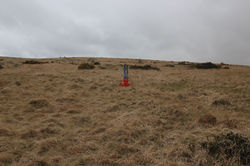
 |  |
|---|---|
 |  |
 |  |
 |  |
 |  |
 |  |
 |
The Laboratory of Living Architecture
18th,19th,20th Jan.
Pune Art Biennale 2017
This project was funded by the Austrian Cultural Forum New Delhi and supported by the Pune Biennale Foundation.
The laboratory of living architecture is an enquiry into a more fluid understanding and inhabiting of urban space. It wants to look at a creative repatterning of how we think, see and ultimately move in and within architectural spaces. As Social Choreography this work acts on multiple layers and wants to release fixed notions of how we regard the architctures that house our urban lives. It is a relational
dialogue in three parts in which different notions of architecture and civic agency are the enquiry.
 |  |
|---|---|
 |  |
 |  |
 |  |
 |  |
 |  |
 |  |
Concept & Choreography:
Minou Tsambika Polleros
Dance/Performance:
Bhakti Deepak
Gayatri Kurumkar
Madhuri Kuchekar
Tejaswini Wadekar
Akash Farate
Sneha Chaudhari
Meenakshi Jadhav
Rashmi Jadhav



Organisation:
Janhavi Dhamankar
Nachiket Prakash
Photography:
Yogesh Kambley
Avantika’s Photography & Video
HOMING-IN
Exhibition of choreographic Photography
Garden Room Gallery: Dartington, UK
11 May - 8 June 2017
By Minou Tsambika Polleros
& Rosalind Holgate Smith
Homing -In
Is a multimedia exhibition of two dance artists who are both focussing on the exploration of body in landscape in conjunction and collaboration with the photographic lens. The show consists on a selection of photographic works accompanied by sound and video installation, an attempt to capture both artist’s explorations of moving in the landscape through combined photographic and choreographic processes.
Minou Tsambika Polleros and Rosalind Holgate Smith are both exploring distinct choreographic techniques and particular perceptions of their environments. Their two projects alongside each other highlight the very different relationship with the photographers they have evolved with. Both artists will present through the shared medium of photography, emphasizing their different artistic perceptions and intentions for this work. The show will illuminate not only photographic works but will be accompanied by audio recordings, video and written excerpts of choreographic techniques, pointing out different practice methodologies that make both their works distinct.
 |  |
|---|---|
 |  |
 |  |
 |  |
 |  |
 |  |
 |  |
 |  |
 |  |
 |  |
 |

F E R A L / Radical Capacities of the Sensate
An exhibition concept in the making:
by Minou Tsambika Polleros
This exhibition features 15 artists from around the globe who care to address the reality of changing climates as collective concern and endeavor. The show consists of a selection of 45 photographic works in some cases accompanied by sound, video installation and process writing. The show is curated via open call with the focus of assembling three works per artist. Feral is dedicated to depict the relationship of body in landscape as poetic metaphor for what deep ecologists call ‘ecological self’, a human being that knows itself as active partaker within the ecosystem. Central to this exhibition is the objective to create a wide ranging assemblage of photographic works from all continents, featuring earths diverse landscapes and topographies with the focus of highlighting climate change as collective issue. The six week running show tells a story of an anthropocene that has forgotten its place in the wider web of creation.
The curatorial collaboration aims to raise awareness and gather momentum across disciplines to consider a more eco-centric narrative in the business as usual. It furthermore intends to be a good example of uniting creative endeavor for radical and pressing causes.
The collective focus of all works is the exploration of body in landscape, a metaphor for the de-domesticated self that is not returning to a past evolutionary stage but transcending into a more holistic sense of ecological and social self.

One minute acts of changing my view
A photographic assemblage
A work in progress:
The headstand as instrument of consciousness and as small act of creative protest:
This work is a small work. It invites people to see the world, to see and observe their thoughts, feelings and ideas from a different perspective. It invites people to repattern their normal way of being in the world, by turning themselves upside down, discovering new ways of seeing, being - new possibilities.
 |  |
|---|---|
 |  |
 |  |
 |
BODIES ON THE LINE
An exhibition of the practice of choreography as activism
A concept in the making:
This show is a historic account of how bodies and choreography has been used in contexts of direct action throughout time. Via archived imagery, photography, text and video this show summarizes the power of when the body is put on th line in solo and collective moments of direct protest.
The show intends to raise awareness of the history of direct action and protest. It also wants to create a space in which body is used as a poetic instrument for making a point. I am interested to expand the defeinition and stage of the dancer and choreographer, as someone who studied movement and how movement can be. The arena for arts within activism, is expanding - perhaps into a more delicate definition of activism.

 |  |
|---|---|
 |  |
SPRACHROHR
community politics over time: Activism and community engagement in indiginous cultures
An exhibition in the making:
This exhibition examines the multiple practices and instruments that were used in diverse indiginous cultures to facilitate local community politics. It examines instruments that gave voice and power to the speaker, it examines practices and rituals used in times when the community was classified as unwell. A timeline throughpuit history - what happened in small communities before there were nations and countries?